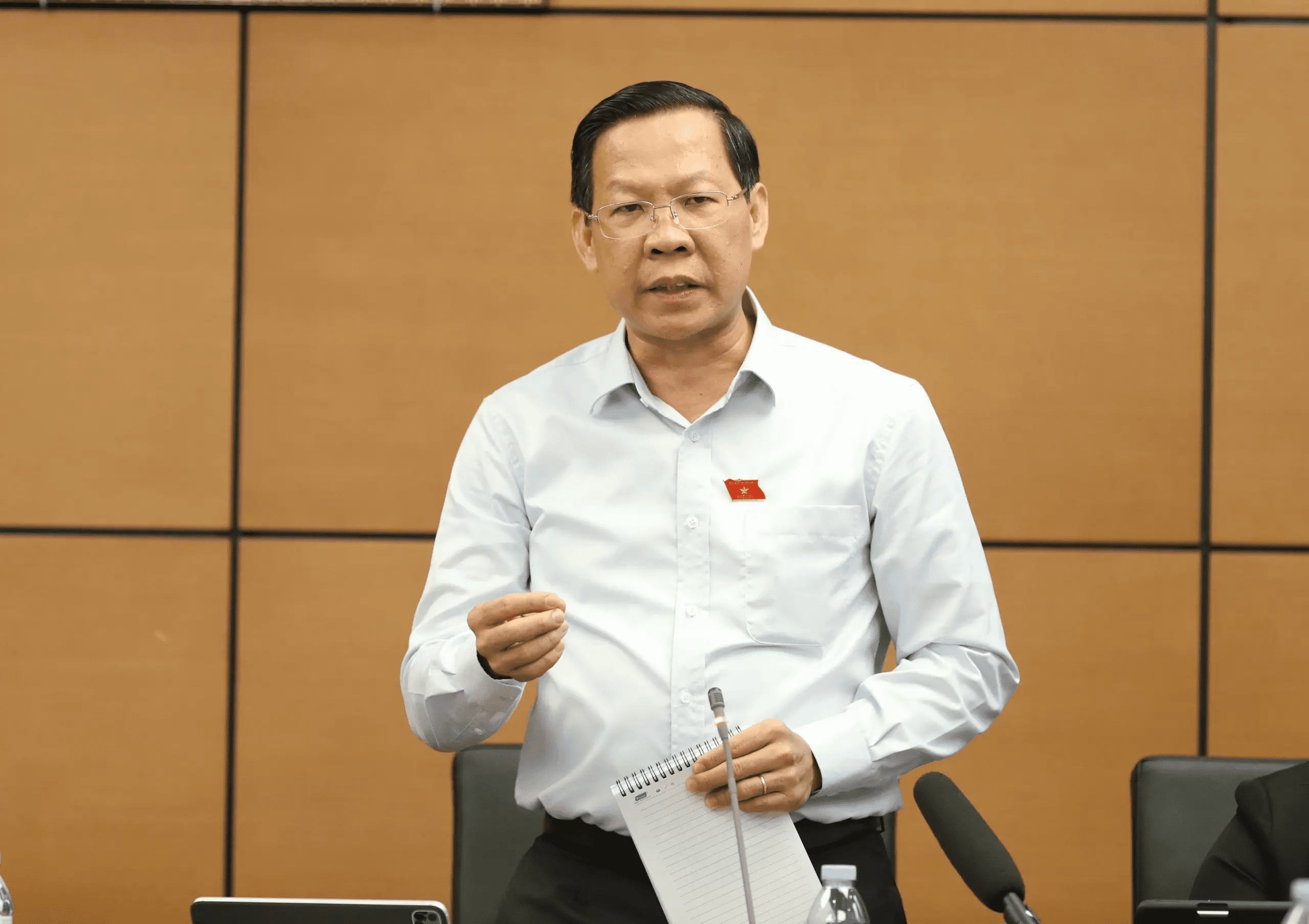
However, the scandals in the Viet A cases and medical equipment procurement projects have cast a black shadow over the medical sector.
Speaking at the ongoing session of the National Assembly on May 25, discussing the socio-economic situation, HCM City Mayor Phan Van Mai agreed with the Government’s report submitted to the National Assembly, saying that achievements have been made following tireless efforts.
Mai said HCM City controlled the Covid outbreak well, and economic recovery has been going well.
A question was raised about what will happen if the opening is delayed for more than one month and if there are no measures and policies on epidemic prevention and control. It provides a big lesson about being decisive and serious in opening the door and implementing post-Covid-19 measures.
Succeeding in fighting the pandemic, the medical forces have been praised as heroes. However, the achievement has recently been overshadowed by wrongdoings discovered in medical equipment procurement.
“After the scandals, people look on the black side of everything and believe that wrongdoings exist in every procurement project. As a result, medical workers have turned from heroes to violators in people’s eyes,” Mai said.
One of the tasks of leaders is discovering and punishing wrongdoings, while protecting the prestige of the medical sector.
The problem is that many medical centers dare not buy medicine and equipment, resulting in a shortage of equipment and medicine. “I believe this is an urgent problem which needs prompt action,” Mai said.
He said that he had a working session with the HCM City Healthcare Department on May 24, discussing the procurement of drugs and chemicals that serve demand for healthcare services from people.
Commenting about the issue, Nguyen Tri Thuc, a National Assembly deputy, Director of Cho Ray Hospital, said those who commit wrongdoings must be punished, but in the context of fighting the pandemic like fighting enemies, it is necessary to have a comprehensive and multi-sided view. He mentioned the procurement of medical equipment for epicenters, including HCM City, Bac Giang, Hai Duong and other localities.
He said after the scandals, it’s now the time to sit together to amend some regulations on bidding in order to enhance risk management and reduce the settlement of consequences.
Citing Pham Khanh Phong Lan, a National Assembly Deputy, he raised a question about whether hospitals should choose the cheapest drugs through bidding and whether cheap drugs are good to patients. And he affirmed that cheap drugs don’t mean high quality.
Thuc said he can see good cooperation deals in the healthcare sector. This allows large hospitals to obtain modern equipment and helps improve their skills and the medical sector satisfy patients’ needs.
Therefore, he believes that it is necessary to have a legal framework for cooperation in medical equipment. If hospitals don’t have modern medical equipment, doctors’ qualifications will drop.
He believes that the professional qualifications of doctors in HCM City and Hanoi are comparable with the region and the world.
The medical sector has unexpectedly issued many documents recently, which has put patients and hospitals into a difficult situation. Therefore, Thuc proposes that the Government require management agencies consult with hospitals before issuing documents directly related to patients.
Regarding the opinion about more investment in the medical centers at the grassroots level, Thuc said it would be a big waste if turning commune medical stations into district or province’s hospitals. It is necessary to make appropriate investments that fit the function of the stations.
He emphasized the role of medical workers at medical stations and said he doesn’t agree with the policy on sending newly graduated doctors to commune medical stations. New graduates, with no healthcare experience, won’t be able to improve their professional knowledge skills if they are sent to remote areas where there is no equipment.
It would be better to send doctors at provincial and district hospitals who have more than five years’ experience to commune medical stations for six months or one year.
Lan agreed with Mai, saying that healthcare and education are the two important things which care for people, so the Government needs to take stronger actions, especially the Ministry of Health (MOH). Stressing that human resources play a very important role in developing the healthcare sector, MOH needs to build a reasonable policy for medical workers.
Tran Thuong